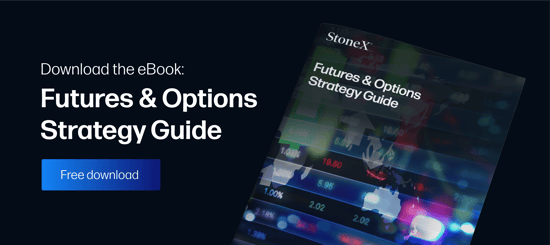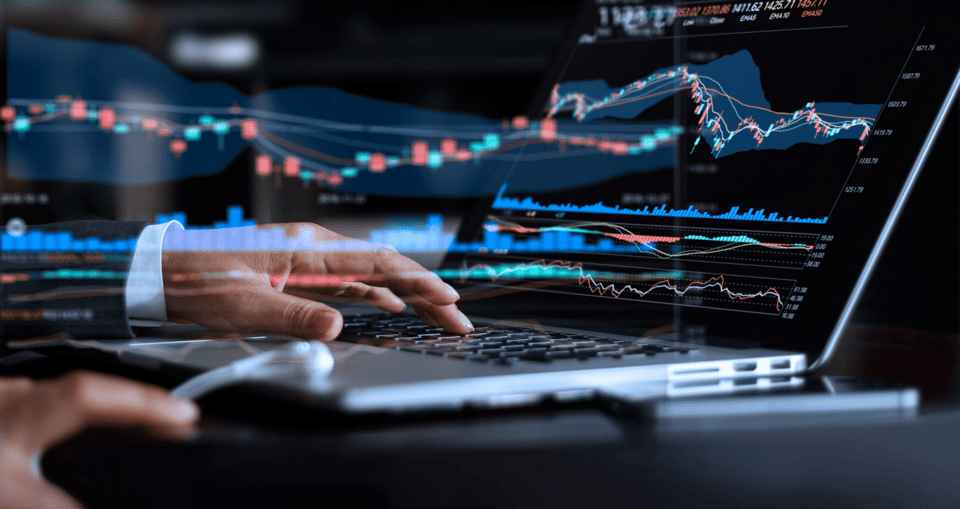To many people, the idea of an algorithm – especially in the context of trading, might as well be describing the foundational elements of calculus or maybe even the guiding principles of general relativity. In essence, an algorithm seems as an incomprehensible system that is only able to be understood by a very few group of experts who have a dominate advantage to all other market participants because they can create these “undefeatable” systems.
Now, maybe you don’t hold such an intense pessimistic view of competition against Algorithms. Maybe they’re not “undefeatable” in your mind, or not even in the realm of super abstraction but rather something you just don’t fully understand. Regardless of where you fall along the spectrum of understanding Algorithms, they are playing an ever increasing role in all types of trading and for that matter all of daily life.
What is a Trading Algorithm?
So what is a trading algorithm? Honestly, an algorithm is just a set of instructions. In our context, it’s a set of instructions on when to buy and when to sell. The instructions are put together based off of “desired” technical market indications on when to enter a market and when to exit a market. Say the writer of the algorithm puts together a poor set of instructions then the algorithm will perform poorly. If the writer of the algorithm puts together a good set of instructions then the algorithm will perform well. Below is a very basic example of instructions which could be the steps of an algorithm.
![]()
This example runs into some problems, like what happens if there is no contents in the pitcher? If your desired result was to say pour a certain amount of water out of the pitcher into another container then there are a few steps that should be added to ensure a correct result. These steps would include adding confirmation that there is water in the pitcher at the beginning, aiming the pour, the height the pitcher is being picked up and so on. Every time there is a step added to the system the system could become more accurate in accomplishing the desired result. There is a drawback to adding steps to the system which is the more steps you add the longer and more computation it takes to perform. If the algorithm (system of steps) is too long, then it might not be able to be executed fast enough to be effective.
To address efficiency and effectiveness from a computer science perspective there are many different logic (math) approaches that can be employed. For a basic approach at explaining algorithms check out Khan Academy through this link. For a more complex look at algorithm analysis from a computer science and coding perspective check out this link.
The Advantage of Using A Trading Algorithm
In my analysis, algorithms have one outright advantage over humans when it comes to trading. Since algorithms in our context are run by computers they have no emotion. They simply complete the system of steps their creator gave them with 100% disregard to their interpreted success, for to a computer completing the systems of steps is the success. If the computer places a “bad” trade (negative emotion evoked in humans) that loses money it doesn’t know/understand it. The computer will continue to trade the system until told to stop. On the flip side if the computer places a “good” trade (positive emotion evoked in humans) that gains money it also doesn’t know/understand it and will continue to trade the systems steps until told to stop. For this reason computer run algorithms have an outright advantage over humans.
Many people which include financial professionals would throw into this argument that computer algorithms can enter and exit trades much faster than humans which is true. Speed in trading is often an advantage but not in all cases. There are times that moving too fast can cause missed opportunity, over execution, or the incurring of loss. It is these reasons that I do not include speed as an outright advantage of computer operated algorithms.
Can You Beat An Algorithm?
Yes, people can out trade a computer run algorithm to have better gains. The reason it isn’t often heard of is simple. People are very emotional and lose discipline (don’t stay consistent with their plan) when their emotions are evoked whether they are positive emotions (adding on to a winning long positions when your indicators tell you to sell and take a profit) or negative (resorting to guessing at trades when you have placed a few losing trades).
Don’t believe me? Let’s go back to the beginning of the article and review the question, what is a trading algorithm? It’s just a set of instructions, which in the modern trading world, are laid out for computers to read and execute the same over and over without the existence of emotion. If you want to beat the computer algorithms come up with a better set of reliable instructions that you can implement on a timeframe that works for you. Once you’ve done that stick to your plan, if it needs revision over time then you can update it.
Conclusion:
Can we humans out trade a computer run algorithm? The answer is yes, it is very possible to out trade a computer run algorithm in the sense of participating in the same market and still realizing a profit. If you seriously want to be successful in trading or anything for that matter you must learn how to manage your emotions so that when they are brought out, you can stay disciplined and not lose sight of your ultimate goal.
Sources
Khan Academy. (2018). Intro to algorithms. [Video file]. Retrieved from: https://www.khanacademy.org/computing/computer-science/algorithms/intro-to-algorithms/v/what-are-algorithms
Shruti, Tanwar. (March 28, 2018). Let’s simplify algorithm complexities. Retrieved from https://medium.freecodecamp.org/lets-simplify-algorithm-complexities-25e75f37d03f



